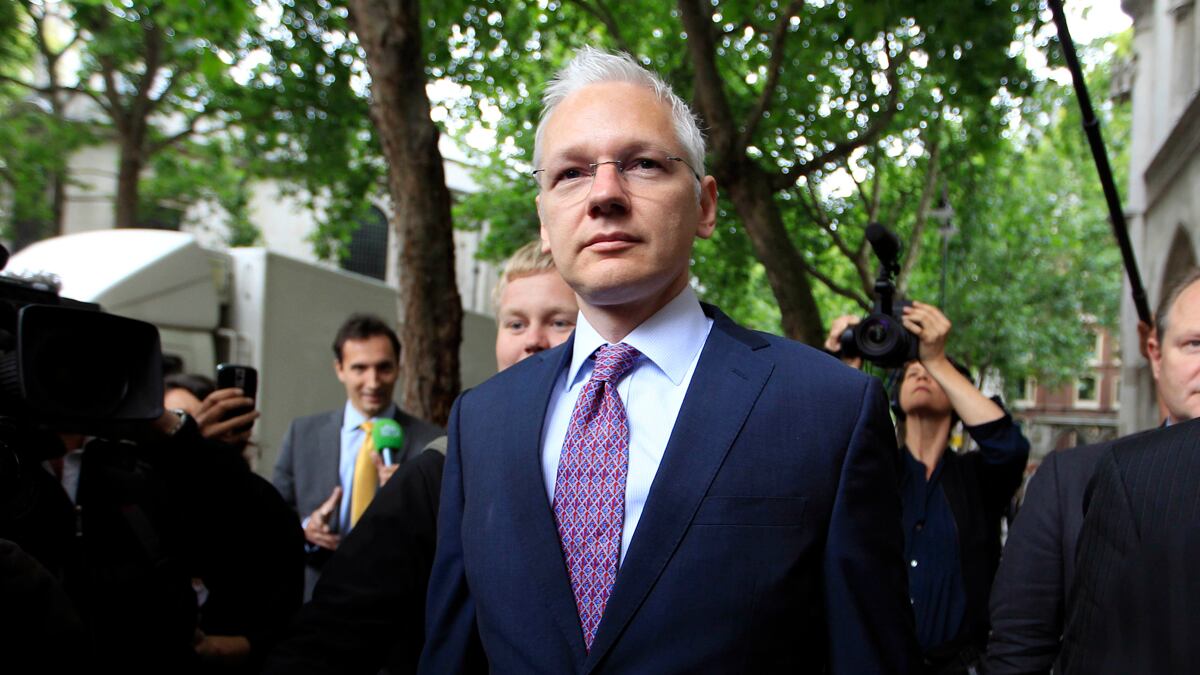An earthquake, a hurricane, and now pestilence—another tranche of leaked diplomatic documents by WikiLeaks, 134,000 of them now flying locustlike in every direction—all within one week. August strikes Washington yet again.
Nine months ago, WikiLeaks used mainstream media such as The Guardian, The New York Times, and others to report on the cables while redacting the names of individuals whose lives or careers could be placed at risk if identified publicly. This time WikiLeaks dropped the massive trove hurriedly and wholesale, perhaps due to security skullduggery or competition for relevance. Whatever the reason, no altruistic motive is readily apparent.
With the new revelations, familiar questions rise again. What will the damage be? Aren’t you overreacting? Doesn’t this put the United States in a favorable light?
As someone intimately involved in these matters until March of this year, I can provide some perspective, but it is still too early to tell. To an extent, we may never know.
First, damage has been done, and will be again through this latest round. Taken in total, these documents were classified for good reason. They covered subjects that touched on core U.S. national security interests and concerns, involving a wide range of countries from China to Venezuela.
Unlike pre-Internet leaks that involved one country and a few documents, these massive leaks undermine the relationships we have with almost every country with which we have relations. Even though the cables involve lots of truth telling, no population wants to see its laundry hung on the front page of the world’s leading newspapers. And people thought America was arrogant before any of this happened.

While the Obama administration has worked hard since 2009 to rebuild relations with foreign publics, it sometimes feels like Chutes and Ladders. In a number of countries, it will be back to square one.
Secretary of State Hillary Clinton and her team will work hard to mitigate further damage. The pique will fade in time, but it will inhibit diplomacy for a while. Just as before, a couple of ambassadors will have tours curtailed because the host country resents their candid reporting. It doesn’t sound like much, but having experienced and effective ambassadors at posts in troubled countries matters. Think Syria.
Whether someone died—the Julian Assange standard—is not the right metric. Lives have been fundamentally changed—people forced to move to new countries, jailed, fired, or threatened. All of these things have happened.
The sky has not fallen on the United States—no one within the government said it would—but it has on some of our best sources of information. This latest release includes the names of contacts with a caution to “strictly protect” their identities because the information is very sensitive, and the source is taking an extreme risk by providing it to the United States. The risk to them has gone up.
When the cables were first released, some suggested the government’s primary concern was not harm but embarrassment. While a few cables required context, broadly speaking they showed diplomats serving U.S. interests around the world, painting a candid, realistic, and accurate picture of leaders and policies of other countries. The infamous cable about the pretentiousness, quirks, and unpredictability of Muammar Gaddafi is but one example.
No U.S. policy changed because of the WikiLeaks revelations. If that was Assange’s goal, he has failed.
But it is likely that U.S. policymaking is less informed today than it was before WikiLeaks. While conversations still occur every day among U.S. diplomats and kings, prime ministers, other government officials, activists, and business leaders around the world, those conversations are undoubtedly less candid. Reporting cables are still written, but they are less robust and seen by fewer people. The good stuff is still sent to Washington, but via email or phone.
Why is this harmful? It undoes some of the progress made after 9/11 to push information out of agency silos and share it widely across the government. That was why the State Department, with the support of the Pentagon, created the Net-Centric database, from which the cables were leaked.
Does this mean that we will fail to connect a crucial dot in the future? The honest answer is, we don’t know, but none of this helps.





